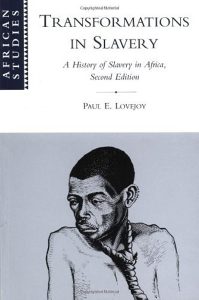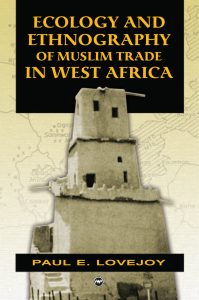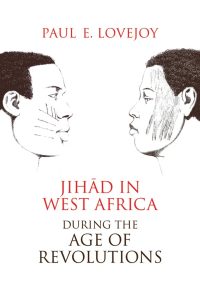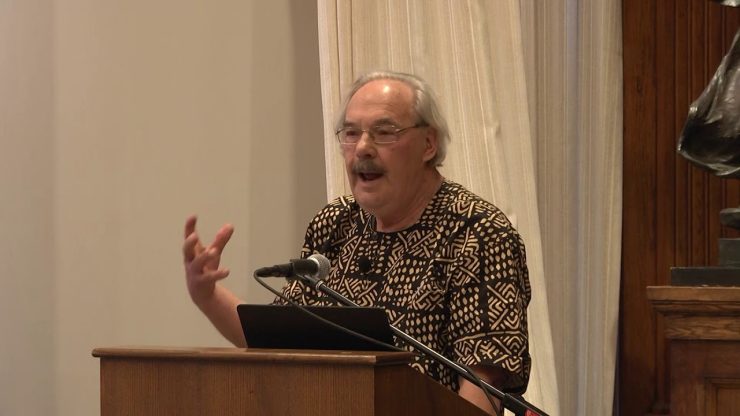A CONVERSATION WITH PROFESSOR PAUL LOVEJOY, PART 1

Professor Paul Lovejoy at 80
(This is Part 1 of the Prelude of the Interviews with Professor Paul Lovejoy on his long career, to be conducted in multiple locations, including Toronto and Costa Rica)
PART 1
African Enslavement: The Untold Story
The history of slavery has always attracted nuances from those who examine its attendant consequences, implications and significance or lack thereof, in the world of the perpetrators and the victims. Incidentally, the activities of history are not exclusive for any party to relay. No matter the gravity of destruction undertaken by one person to another, each has the latitude but not necessarily the moral right to relay history. This opportunity has been over-flogged by everyone who immediately rushes to inscribe issues on the black and white paper, even when they are quite aware of the overbearing problems they constituted for the issues they raise or discuss.
For slavery as an epochal event in the history of Africans, numerous writers have struggled to put their sides of the story down for the consumption of the public. Thus, objective works on slavery are understandably inadequate for obvious reasons. Those with a resource to objectively evaluate the experiences are already compromised by commission or collaboration. Commission because they are beneficiaries of the morally reprehensible actions of slavery, and collaboration because they have a history of playing an integral role in the process mentioned.

The cumulative work of Paul Lovejoy is constantly reminiscent of a generous engagement of a committed intellectual who makes painstaking and laudable efforts to resist the partisan temptation to mischaracterize the events of slavery, especially as seen from the angle of the exploited: Africans.
The intellectual works he has produced on slavery are massive, and from them, we have gained insight as to how the experience of slavery was not only wreaking emotional havoc on the victims and their offspring but was also the source of psychological, economic, moral and ideological trauma which they face today. For instance, Lovejoy x-rays the underlying challenges enslaved Africans face in an excruciatingly traumatic way. In Slavery, Abolition, and the Transition into Colonialism in Sierra Leone, the scholar educated us about the deep-seated racism that motivated and also characterized the business of slavery in Africa. It seems very apparent, for example, that the underrepresentation of figures of Africans who were the victims of slavery was aimed at undermining the outrageous roles played by Europeans in the event of history. The book tells us, among other things, that contrary to the belief that slavery tuned down in Sierra Leone, numerous events of history reveal the patterns of enslavement that were consistent there. In all fairness, these patterns were not devoid of the brutally dangerous styles by which the people were subjected to ridicule. Apart from denying them the decency of human dignity, the Sierra Leoneans of the slavery period were forced to undergo torturous processes of naked and blatant destruction.

In 2011, Lovejoy made another seminal academic exploration of reevaluating the aftermath effects of the experience. Transformations in Slavery: A History of Slavery in Africa is a landmark, unfolding in understanding otherwise misconstrued information that earlier works have made. Several materials available on transatlantic slavery underplayed the figures and gravity of the experience in ways that one would believe was passive historical event that did not deserve attention. The implications of this orientation are numerous. Among other things, reducing the figures taken into slavery intends to achieve a purpose for which luxury the victims of slavery cannot afford. That the number of enslaved Africans was reduced, among other things, paints the European perpetrators as passive actors in the problems of Africans. And more than this, it obscures the underlying problems that the people would face in contemporary times, among which is the descaling of intellectual and economic power. Enslaved Africans carted away from their bosom in Africa were individuals of intellectual and economic importance. They were the architects of their people, doctors of their people, craftswomen and men and creatives who were drawn away forcefully, which had outrageous consequences on the continent. Invariably, Lovejoy offers a wide range of interpretations and conclusions.
Lovejoy has dedicated much of his intellectual energy to examining these historical events so that the scholarly efforts to appropriately register the contributions of every party to the problems of Africans and others who once experienced slavery would be understood and put into the right context. If anyone offers us data about the challenges associated with slavery and colonialism, scholars have the moral responsibility to interrogate the data so that they would understand the hidden messages kept in the documents. Such is the energy dissipated by Lovejoy when he wrote an exemplary work on The Impact of the Atlantic Slave Trade on Africa: A Review of the Literature. What he does in the book is to interrogate the problems keenly connected to the history of the enslavement of Africans and the economic opportunities that perpetrators enjoyed during the time. In his review of relevant literature, he understood that the accuracy of the figures given is contestable. And more than this, his examination of the events reveals that slavery was systematically encouraged and morally supported by Europeans who offered everything to make such an experience a success for the perpetrators. For instance, locals involved themselves more in internecine wars, conflicts and hostilities that led to the enslavement of others for sale. The expectation that these Europeans would do their bidding contributed to why they fought their types, which worked for them for a long time. Nevertheless, they were left to suffer the consequences themselves.

With the same interest and energy, this scholar of stellar academic contributions has considered the troubles and terrible experiences enslaved Africans faced in the New World. The work titled Crossing Memories: Slavery and African Diaspora helps us to contextualize the challenges of people displaced by Europeans for economic reasons. The victims were first exposed to an unfriendly atmosphere where they could not enjoy the dignity of being humans. They faced unprecedented racial abuses, were confronted with a deepened identity crisis, and were overwhelmed by social challenges that immersed them in the problems mentioned. Therefore, the accumulation of these bad experiences triggered them to think about their very background in Africa. While consumed by the challenges they faced there, they were relieved by their experiences of their indigenous life. They found assistance in nearly all the things done in the past before they crossed their borders, either deliberately or forcefully. They have, therefore, weathered all conceivable challenges directed towards them, and they now become very important in the diaspora as external wings of Africans who now contribute in different dimensions to the uplift of the African nation. The work’s central message is that enslaved Africans could not but experience divided and unstable consciousness. They are already helpless in determining what happens to them from when they were taken to the New World, but they can create a better experience in New World.
It is, therefore, understandable why his intellectual mates have consistently revered Paul Lovejoy. His dedication to studying recent African challenges has yielded substantial outcomes for the people. For one, his research involvements have taught us that the experience of slavery sets the history of Africa and Africans back but does not necessarily define it. This is underscored by the awareness that numerous great things are associated with the continent in the distance and proximal past, so they cannot be defined by it. He made very revealing comments about achieving specifics about captives forced to the periphery in a strange land. He understands that there is the coloration of ethnic identity associated with slavery, which means individuals either in the Americas or Europe as enslaved Africans can have their origin looked into so that appropriate information about them can be sourced. It is a relief that he mentioned, among other things, that capitalist ambition was the primary driver of the slavery business in England and other European countries. And for them to continue to have necessary powers over others, they needed access to human and natural resources that would be used to their advantage.
All the works he has authored serve as incredible sources of rigorous knowledge on slavery. Without the various books and essays by Paul Lovejoy, our understanding of slavery in general and the trans-Atlantic slave trade would have been considerably diminished.














You must be logged in to post a comment.